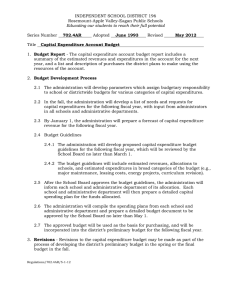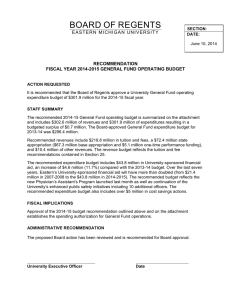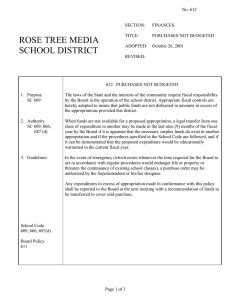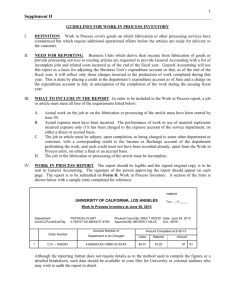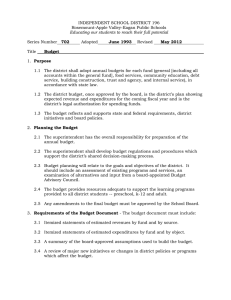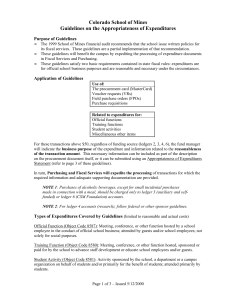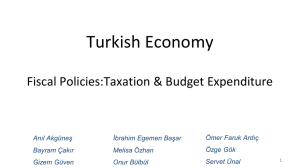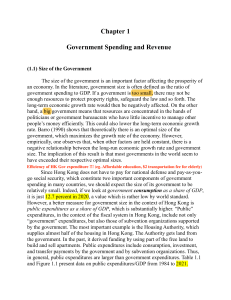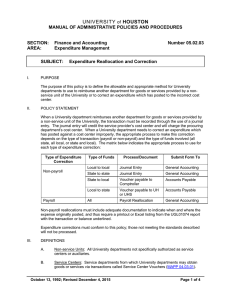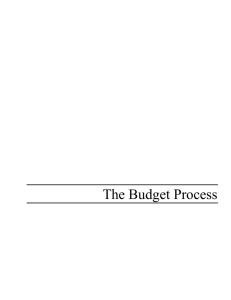organizational unit and/or for specific purposes, activities, or objects.
advertisement
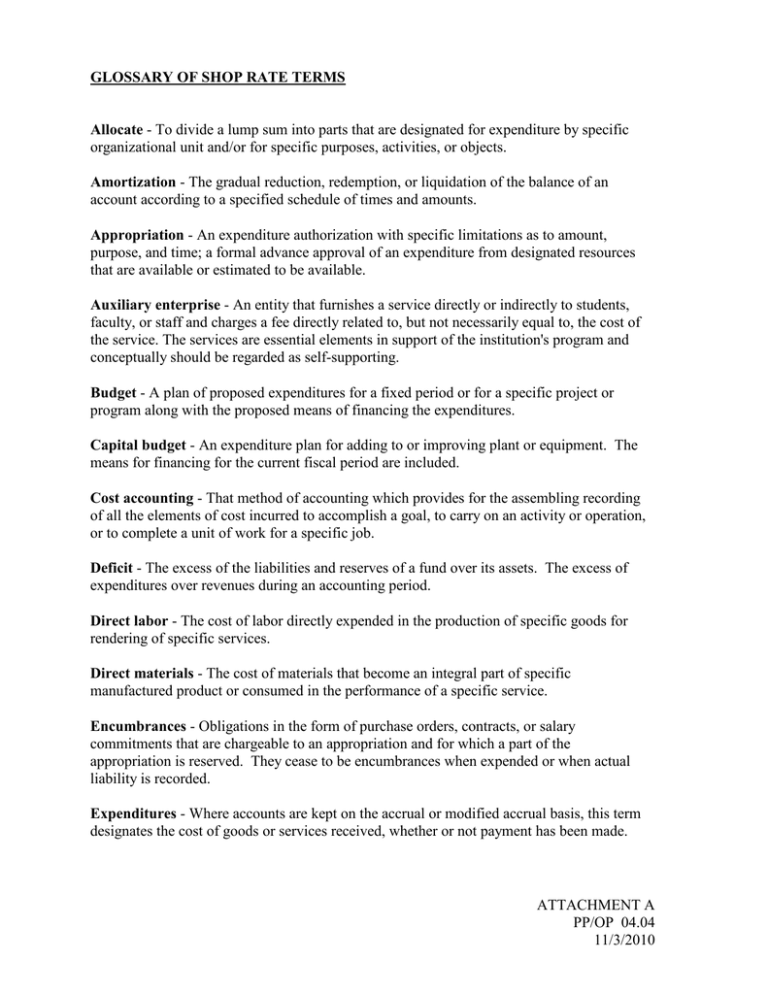
GLOSSARY OF SHOP RATE TERMS Allocate - To divide a lump sum into parts that are designated for expenditure by specific organizational unit and/or for specific purposes, activities, or objects. Amortization - The gradual reduction, redemption, or liquidation of the balance of an account according to a specified schedule of times and amounts. Appropriation - An expenditure authorization with specific limitations as to amount, purpose, and time; a formal advance approval of an expenditure from designated resources that are available or estimated to be available. Auxiliary enterprise - An entity that furnishes a service directly or indirectly to students, faculty, or staff and charges a fee directly related to, but not necessarily equal to, the cost of the service. The services are essential elements in support of the institution's program and conceptually should be regarded as self-supporting. Budget - A plan of proposed expenditures for a fixed period or for a specific project or program along with the proposed means of financing the expenditures. Capital budget - An expenditure plan for adding to or improving plant or equipment. The means for financing for the current fiscal period are included. Cost accounting - That method of accounting which provides for the assembling recording of all the elements of cost incurred to accomplish a goal, to carry on an activity or operation, or to complete a unit of work for a specific job. Deficit - The excess of the liabilities and reserves of a fund over its assets. The excess of expenditures over revenues during an accounting period. Direct labor - The cost of labor directly expended in the production of specific goods for rendering of specific services. Direct materials - The cost of materials that become an integral part of specific manufactured product or consumed in the performance of a specific service. Encumbrances - Obligations in the form of purchase orders, contracts, or salary commitments that are chargeable to an appropriation and for which a part of the appropriation is reserved. They cease to be encumbrances when expended or when actual liability is recorded. Expenditures - Where accounts are kept on the accrual or modified accrual basis, this term designates the cost of goods or services received, whether or not payment has been made. ATTACHMENT A PP/OP 04.04 11/3/2010 Page 2 Expenses - Charges incurred (whether paid or unpaid) for operations, maintenance, interest, and other charges that are presumed to benefit the current fiscal period. Fringe benefits costs – The costs associated with employee benefits including worker’s compensation insurance, retirement fund contributions, group medical insurance, and all other associated costs. Fund accounting - A sum of money and other assets that constitute a separate accounting entity, created and maintained for a particular purpose, and have transactions subject to legal or administrative limitations. Its double-entry accounts are self-balancing, and from there a balance sheet and operating statement may be prepared. Fund balance - The excess of the assets of a fund over its liabilities and reserves. An exception is in a case of a fund subject to budgetary accounting prior to the end of a fiscal period. In this instance a fund balance is the excess of the fund's assets and estimated revenues for the period over its liabilities, reserves, and appropriations for the period. Indirect costs - Costs that have been incurred for purposes common to some or all of the specific programs or activities of the Physical Plant but that cannot easily be identified and charged directly to a customer with a reasonable degree of accuracy and without an inordinate amount of accounting. Examples included department supervision, leave, training, rest periods, shop cleanup plus administrative services such as accounting, purchasing, human resources, and engineering services support. Inventory - A detailed list showing quantities, descriptions, and values of property and, frequently, units of measure and unit prices. Overhead - Those elements of cost necessary to perform a service that cannot be easily or accurately charged to the service. Overhead items usually relate to those objects of expenditure that do not become an integral part of the finished service. Examples are computer services, vehicle maintenance and fuel, office supplies, indirect labor, and telephone services. Reimbursement - Funds or other assets paid back for work or services performed. Work Order - A written order authorizing and directing a certain task to be performed issued to the person who will direct the work. Among the items of information shown on the order are the nature and location of the job, specifications of the work to be performed, and a job number. ATTACHMENT A PP/OP 04.04
